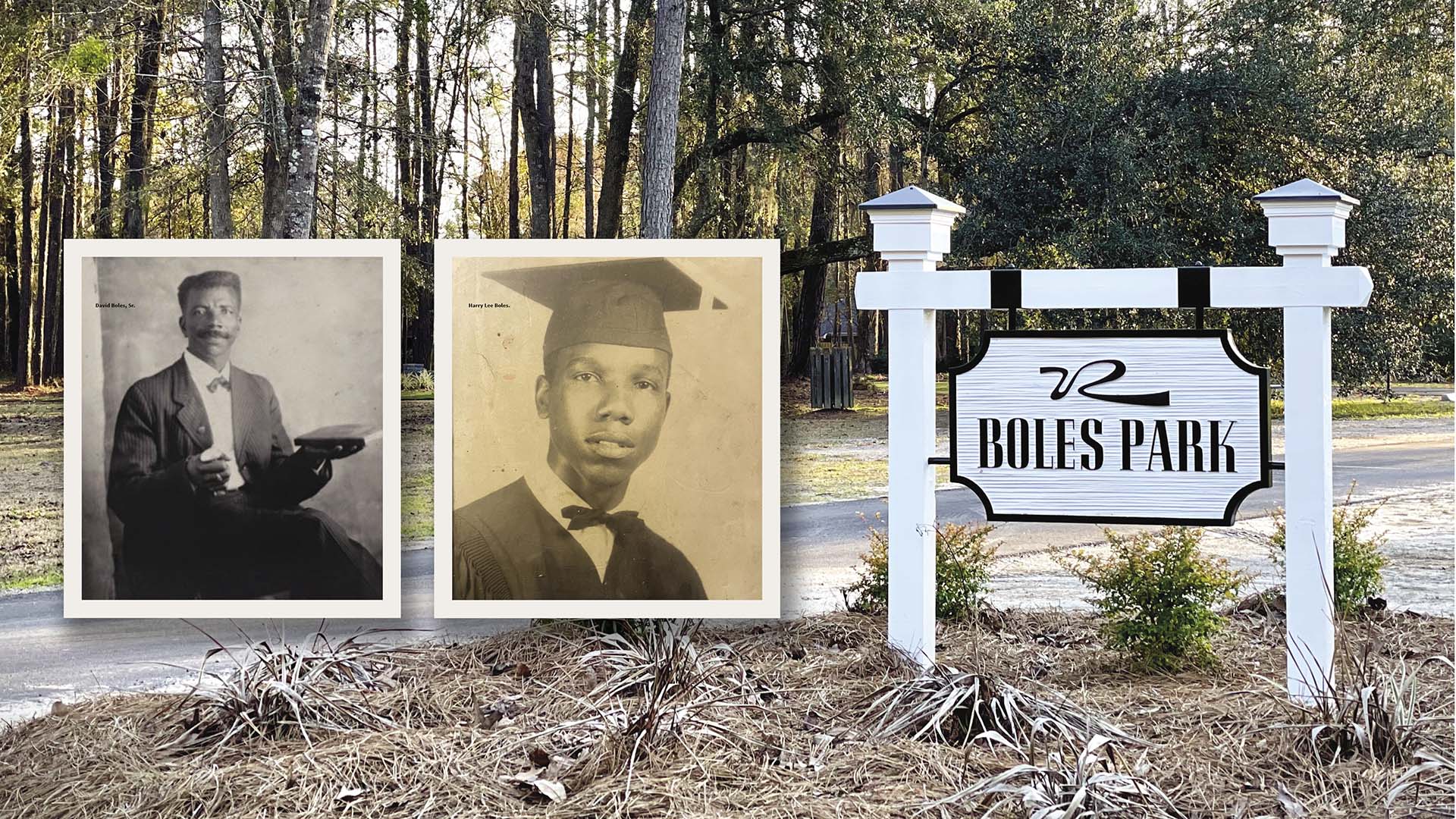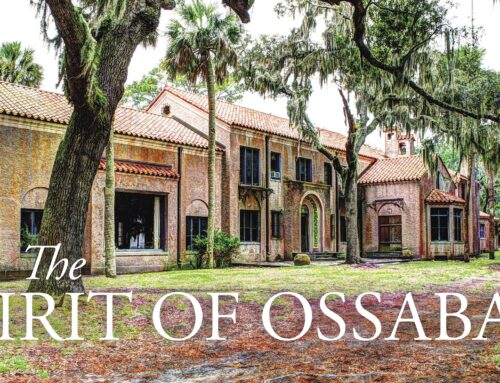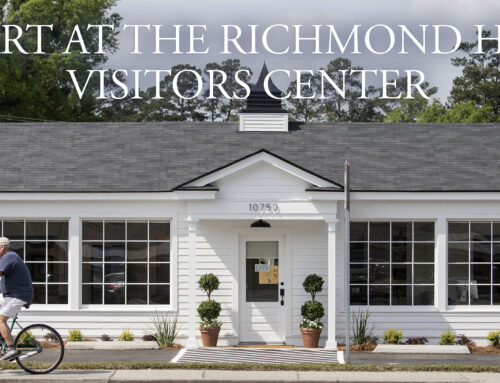Written by Carey K. Daughtry Photos Contributed by The The Boles Family and by Reflections
Karen Boles-Grant has many stories to tell of a family legacy in Bryan County.
On December 8, 2020, The City of Richmond Hill hosted the Grand Opening of Boles Park. The park is dedicated in memory of her grandfather, David Boles Sr., and her brother, Harry Lee Boles. This is the story of how Boles Park was named.
Sixteen years after the City of Richmond Hill acquired the property, the vision of a park is being realized. It was fitting that Richmond Hill Mayor, Russ Carpenter, stood side-by-side with Karen and members of the Boles family at the grand opening ceremony when one realizes the connection between the two families.
Mayor Carpenter is the son of Robert Carpenter, and Karen is the daughter of Leslie Boles (son of David Boles). Robert Carpenter and Leslie Boles worked together at the local sawmill and developed a friendship that connected the two families together many moons ago.
David Boles was born March 22, 1879. He was an intelligent, well-read man who instilled a thirst for knowledge in his children, including Karen’s father, Leslie Boles. “Daddy read all the time, and we saw him reading all the time, and so we read all the time,” recalls Karen. “Where do you think that example came from? It came from David.”
In 1913, David Boles founded Canaan Missionary Baptist Church, located today on Highway 144. According to church documents, the first permanent structure was built on the site of Cherry Hill school between 1919 and 1921, which was located three-quarters of a mile from Boles’ home in Brisbon on Harris Trail Road. Boles was also the pastor of Bryan Neck Missionary Baptist Church during the Henry Ford era when the current structure was renovated, and founded Little Bryan Missionary Baptist Church in Savannah because, as Karen explains, “During the Depression, African-Americans relocated to the East Gwinnett Street area in Savannah seeking employment opportunities.”
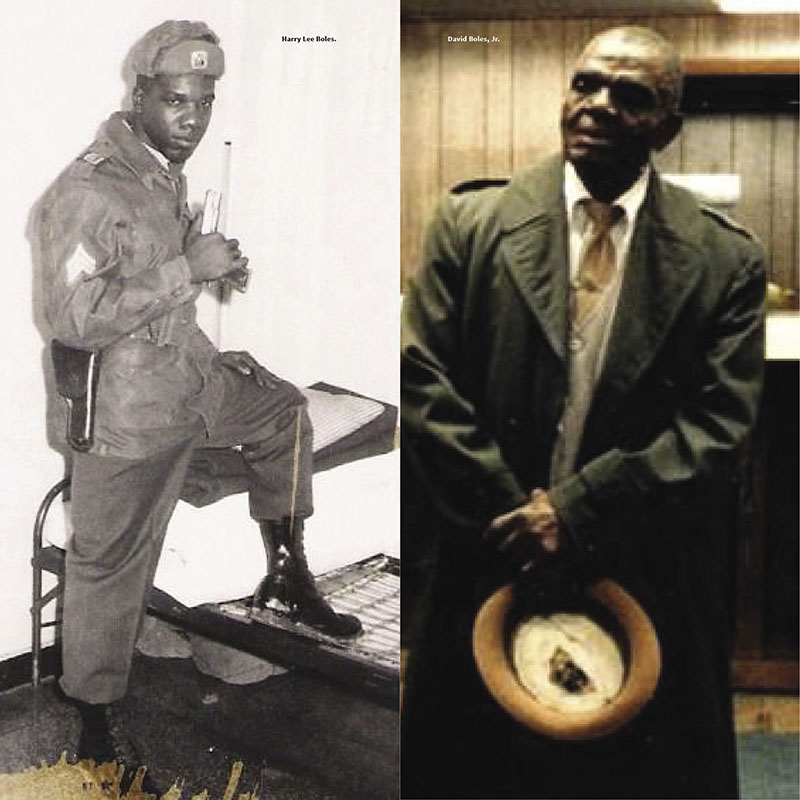
David Boles also founded New Zion Missionary Baptist Church in Riceboro and was pastor of First African Missionary Baptist Church in Jones (now McIntosh County). He also served as pastor at First Zion Missionary Baptist (Riceboro), Beach Hill Missionary Baptist Church (Liberty County), and Saint Paul Missionary Baptist Church (Savannah). He established prayer houses in the Brisbon community. One served members of Bryan Neck Missionary Baptist Church under the umbrella of the Zion Association and the other, which was erected on his wife’s property, served Canaan Missionary Baptist Church. He supplied a store in Richmond Hill and owned a store in Savannah. He also owned a “rolling store” which is the term for a mobile store service that was essential for the survival of many rural Americans throughout history in obtaining food and goods.
Karen describes her grandfather as a kind-hearted man, whose charitable acts towards others has her perplexed at the thought of how he could afford giving away as much as he did. He would take some of the meat he sold at his stores and give it freely to those he saw in need. She wanted to make sure that this generation knew this side of her grandfather beyond the surface of an accomplished pastor and businessman. Karen invited family friend, Willie J. McIver, to a family reunion to share the stories he knew personally about the understated generosity of David Boles.
“Out of everything McIver talked about that day,” Karen recalls, “the thing that stayed most in my memory more so than anything was hearing about his [David Boles] giving spirit and his giving heart.” She adds, “he not only talked the talk, but he also walked the walk.”
Karen’s brother, Harry Boles, is the other person for whom the park is dedicated. Harry Boles is among a long line of family members who proudly served in the military. The park honors his life and military service. Harry Lee Boles is one of two Richmond Hill residents that died in service of the Vietnam War.
It was at the height of the Vietnam War when Harry Boles, having completed his service obligation and been honorably discharged, voluntarily re-enlisted out of a sense of loyalty to the brotherhood of fellow soldiers still fighting in the war. “That took a brave heart and a servant’s spirit to do that,” Karen says with the nostalgia of love and loss intertwined in her voice. Sergeant Harry Lee Boles was killed in action in Vietnam on October 3, 1969, short of his 25th birthday.
Phase 1 of Boles Park has been completed, and among the first components established, is a prayer garden. “That prayer garden was put there because of all the ministers in the family, starting with David,” says Karen. Future development will include a walking trail, a larger picnic gazebo with attached restrooms and kitchen, and a playground.
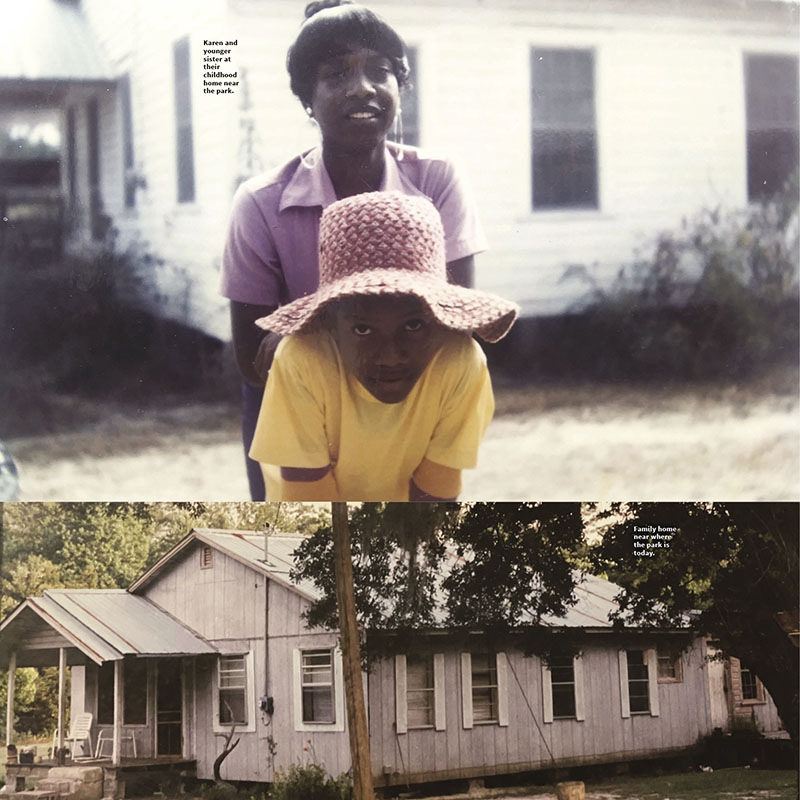
Karen would also like to see the planting of plum trees in the park. When asked about the significance of the plum trees, she recalls how there was a grove of these trees behind the house she and her siblings grew up in. She went on to describe and delight in the memory of how incredibly sweet the plums were. “It’s such a good memory for me.”
Plum trees are said to be symbolic of perseverance, hope, and how beauty can thrive despite adverse circumstances. The tree itself bears new life and new fruit in an ongoing legacy of its own. The Boles family could be likened to a plum tree, deeply rooted in the earth bearing fruitful generations of dedicated and committed ministers, educators, and military service members.
Visitors and future generations of the Boles family will enjoy a welcoming space at Boles Park, filled with the spirit of perseverance, hope, resilience, and the promise of new and eternal life everlasting that represents the legacy of the Boles family. Visitors will enjoy a peaceful respite and learn a little about one of Richmond Hill’s families who were making history before, during, and after Henry Ford came to town. The Boles family will be reminded of good memories of family, faith, and the importance of service to others, and know that their story is honored and not forgotten by a community their family served and contributed to for generations.

